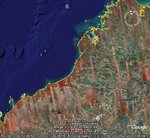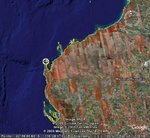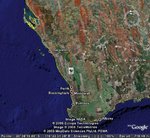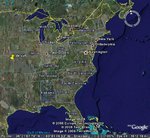- Thread starter
- #141
Freebird
Master Sergeant
Hey don't blame me Freebird, it wasn't me who brought up the weaponology thread, and I didn't start throwing the mud either.
And Freebird once again I apologise for bringing this Thread to disagreement again. I suggest you have one of the Moderators close this thread.
Hopefully it will settle down a bit and that won't be needed.
I think you have both made some good points, and it has been a rather interesting discussion.
Soren while I agree with you that it would be possible for the German commando's to make it to Australia, I don't think the "payoff" would come anywhere near the cost involved. Also Emac the others have made some valid points about the distance involved, it makes it very difficult to account for any problems encountered so far away.
Also, you may be right about the later type IX's having the range to get there in 1942, however I was postulating a "combined Axis plan" in which it would be critical for
(1.) all commando operations to be set up in the fall of '41, so that the teams can go from Pearl +1.
(2.) Germany would need to deploy all type IX's (and many type VII's) on the US east coast to be ready to attack right after Pearl.
I a {hypothetical} German Japanese war conference in the summer of 1941 would give the Japanese the responsibility of commando attacks against Australia, as it was in their sphere of influence, and they already had some intelligence agents operating in many areas of the S. Pacific. There commando attacks would probably be more basic in nature, however the Japanese have the advantage that their soldiers can travel very light, and are all "suicide troops", so will fight to the death instead of surrender.
Perhaps the best tactic for the Japanese to use would be to launch a few 6 carrier attacks against Sydney or Brisbane etc, in concert with the commando attacks. The point would be to force Australia (and the US) to devote several {or many} fighter squadons to defend Australian cities. {instead of defending against Japanese expansion in N. Guinea, Malaysia, Coral sea etc}
Once Germany has decided to throw in together with the Japanese, it would be most profitable for Germany to make commando attacks against the USA, as in peacetime mode it would be almost unprepared for this.
We tend to forget that at this point the US was desperatly short of everything {except bravado
Glider said:You need something more to be effective, continual small strikes that can cause significant damage, that happen again and again, spread uncertainty.
Targets should be infrastructure based, water pumping stations, power lines, fuel pipelines, bridges, almost anything that impacts the civilian population. Anything that makes them question their goverment and what they are being told.
Glider is exactly right, these kind of "infrastructure" attacks could be very effective. Imagine if the US army had to post a company or platoon to guard every, dam, power station, railway bridge, refinery, airfield, etc
Soren said:Emac's links only mention the capture of German agents, nothing about any infiltrations of the Abwehr.
Ok I think you are almost debating different things. I don't think Emac was saying that they "infiltrated" Abwehr HQ, but the capture of agents and especially the info passed by Canaris could be a major problem.
Soren have you read much about Canaris? I know he tried to undermine the Nazi's, but I wonder how much direct knowlege he would have of commando missions, and whether he would expose his own "special ops" teams to capture death?
For example, if it was leaked to the Allies that Germany might be planning sabotage missions in the US in the event of war, this might not be a major problem, as the US was unwilling to believe that they were vulnerable to attack, and the info might not be believed anyways as a possible plant of a "red herring" {there were alot of rumours floating around in the spring/summer of '41, the US was worried about German schemes in Mexico, S. America etc}
However if Canaris was to leak specific information about where the teams would land on the Atlantic coast, or what specific targets they were planning to attack then this could be a major problem.
Questions for Soren { Emac}
Would Canaris have detailed information like that?
What was his status in the summer of 1941? I think that they already suspected his loyatly, is it possible that they would keep him "out of the loop"?
Do you think that Canaris would perhaps only leak general warnings but not betray his own Abwehr special agents?
Soren I don't think that you can dismiss Emac's points about intelligence leaks, the leakage of detailed information could be very damaging to this type of operation.
However on the other hand, I also do recall that the British gave the USA advance warning about "Drumbeat", but it made little difference as the US was unwilling or unable to make any defensive preparations.




